2021
In July 2021, the list of press freedom predators published by Reporters Without Borders includes: [5] [6]
Press freedom predator is an anti-award distributed every few years by Reporters Without Borders. [1] It is attributed to heads of state or groups who are deemed to have a negative effect on press freedom. [2]
Recipients often vehemently deny that they deserve their place on the list. [3] In 2020, Reporters Without Borders also released a list of 20 press freedom's digital predators. [4]
In July 2021, the list of press freedom predators published by Reporters Without Borders includes: [5] [6]
In October 2016, the list of press freedom predators published by Reporters Without Borders includes: [7]
In May 2013, the list of press freedom predators published by Reporters Without Borders includes: [8]
| Image | Name | Country | Role |
|---|---|---|---|
 | Al-Shabaab | Islamic insurgence group active in East Africa | |
 | Boko Haram | An Islamic terrorist organization based in northeastern Nigeria | |
 | Hizbul Islam | Somali Islamist group | |
 | Isaias Afwerki | President of Eritrea (1993–present) | |
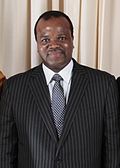 | Mswati III | King of Eswatini (1986–present) | |
 | Paul Kagame | President of Rwanda (2000–present) | |
 | Robert Mugabe | President of Zimbabwe (1987–2017) | |
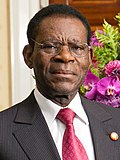 | Teodoro Obiang Nguema Mbasogo | President of Equatorial Guinea (1979–present) | |
 | Yahya Jammeh | President of the Gambia (1996–2017) | |
| Image | Name | Country | Role |
|---|---|---|---|
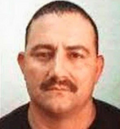 | Dario Antonio Úsuga | Leader of the drug trafficking group Clan del Golfo | |
 | Los Zetas | Mexican criminal syndicate | |
 | Miguel Facussé Barjum | Honduran businessman and landowner | |
| Miguel Treviño Morales | Mexican drug lord | ||
 | Raúl Castro | First Secretary of the Communist Party of Cuba (2011–2021) President of the Council of State (2008–2018) | |
| Image | Name | Country | Role |
|---|---|---|---|
 | Alexander Lukashenko | President of Belarus (1994–present) | |
| Camorra | Italian Mafia-type criminal organization and criminal society originating in the region of Campania, and is one of the oldest and largest criminal organizations in Italy. | ||
 | Ramzan Kadyrov | ( | Head of the Chechen Republic (2007–present) |
 | Vladimir Putin | President of Russia (2000–2008 and 2012–present) Prime Minister of Russia (2008–2012) | |
The list of press freedom predators published by Reporters Without Borders from 2009 to 2011 includes: [9] [10] [11]
In November 2001, the list of press freedom predators published by Reporters Without Borders includes: [12]
In March 2020, as part of the World Day Against Cyber-Censorship, the Reporters Without Borders published a list of digital press freedom predators. The list includes: [13] [14]
| Name | Country | Description |
|---|---|---|
| Electronic Flies | Army of internet trolls in the Algerian government’s payroll. Their main task is to discredit all journalists critical of the government by engaging in online abuse, posting personal information about them and public reporting of critical posts in online platforms in order to remove them. | |
| Hate Office | Consisting of close presidential advisers of President of Brazil Jair Bolsonaro and coordinated by his son Carlos, the group publishes attacks against journalists on a large scale by engaging in social media campaigns of insults and threats. The existence of such group was revealed by Brazilian parliamentarian and former ally of Bolsonaro Joice Hasselmann. | |
| Modi's Yoddhas | Internet trolls who either volunteer their services or are paid employees of the ruling Hindu nationalist Bharatiya Janata Party (BJP) and are supporters of the current Prime Minister of India Narendra Modi. They engage in social media insults, calls for rape and death threats against critics of Modi. Yoddhas in Hindi language means 'warriors'. | |
| The Kremlin's Troll Army | An internet troll army which have an implicit backing of the Government of Russia and President of Russia Vladimir Putin. They spread false reports and videos, engage in doxing and defamation against critics of Putin, and also spread propaganda about those who denounce their activities. | |
| Troll Gangs | An internet troll group who have engaged in social media smears, threats and insults against journalists who have questioned President of Mexico Andrés Manuel López Obrador’s decision to release drug lord El Chapo’s son Ovidio Guzmán López. | |
| Image | Name | Country | Role |
|---|---|---|---|
 | Cyberspace Administration of China | The central internet regulator, censor, oversight, and control agency for the People's Republic of China. The agency engages in internet censorship and supervision of private-sector platforms such as Baidu, WeChat, Weibo and Douyin, and blocking and deleting content and apps. During the COVID–19 pandemic in China, the agency has suppressed social media accounts of media outlets and bloggers, and censored news outlets critical of the government's handling of the pandemic. | |
| | Ministry of Home Affairs | The ministry of the Government of India, which is mainly responsible for the maintenance of internal security and domestic policy of the country. On 5 August 2019, it completely disconnected internet communication in the Indian state of Jammu and Kashmir, resulting in Kashmiri journalists unable to work freely and depriving all of the state's residents from accessing independently reported news and information. Despite broadband connections being partially restored after six months, access to many sites remains largely uncertain and India is the country that most uses Internet shutdowns, with a total of 121 in 2019. | |
| National Commission of Telecommunications (Conatel) | An agency of the Government of Venezuela that exercises the regulation, supervision and control over telecommunications. It orders the blocking of websites that are critical of the authorities of the government and many have been blocked without any possibility of appeal. The agency also temporarily blocks social media platforms such as Facebook, especially when opposition leader Juan Guaidó’s speeches are being broadcast live on Facebook. | ||
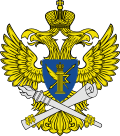 | Roskomnadzor (Federal Service for Supervision of Communications, Information Technology and Mass Media) | The Russian federal executive agency responsible for monitoring, controlling and censoring Russian mass media. It has blocked more than 490,000 websites without warning and without respecting legal procedure, and maintains a secret blacklist of banned sites. The agency also blocks platforms and apps that refuse to store their data on servers in Russia or provide the Russian authorities the means to decrypt messages. | |
 | Supreme Council of Cyberspace | The agency was created in 2012, and consists of senior military and political figures. They engage in online selective access and control, blocking news websites, social media platforms and messaging apps such as Telegram, Signal, WhatsApp, Facebook and Twitter. Internet shutdowns are increasingly used to contain and suppress waves of street protests in the country, and publishing independent information are regarded as “counter-revolutionary” or “subversive” in nature. | |
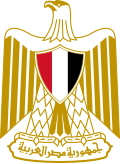 | Supreme Council for Media Regulation (SCMR) | The agency was created in 2017 to "devise and implement the media strategy for the Egyptian state." It engages in the blocking of news sites and messaging apps under the grounds that they publish false information. More than 500 websites and 11 messaging apps are currently inaccessible in Egypt. |
| Name | Country | Description |
|---|---|---|
| Call Centre Hubs | Consisting of supporters of President of the Philippines Rodrigo Duterte, they disseminate fake memes, maliciously edited content and conduct targeted harassment campaigns with the aim of smearing the media and manipulating public opinion. They had launched a campaign to smear and boycott the ABS-CBN radio and TV network with the aim of blocking the renewal of its licence. | |
| Cyber Jihadist Unit | The internet troll army that was created by the National Intelligence and Security Service, which spies on activists, politicians and journalists on social media. It also disseminates messages and articles with false information designed to discredit members of the current transitional government. | |
| Force 47 | An internet army of 10,100 cyber soldiers run by the Ministry of Public Security. They are tasked with setting up, moderating and posting on pro-state Facebook groups. The group is also considered the largest and most sophisticated influence network in Southeast Asia. [15] | |
| Saudi Electronic Brigade | Led by Saud al-Qahtani, the then advisor to Crown Prince Mohammed bin Salman, the network of pro-Saudi Twitter trolls and bots used to produce more than 2,500 tweets a day consisting of false information and hate messages against the critics of the Government of Saudi Arabia. | |
| Name | Country | Description |
|---|---|---|
| Gamma Group | An Anglo-German technology company that sells surveillance software to governments and police forces around the world. The FinFisher software, which was developed by the company, has been used by undemocratic regimes to spy on activists and journalists. | |
| Memento Labs (formerly known as Hacking Team) | The company created spyware capable of extracting files from a targeted device, intercepting emails and instant messages, and activating a device's webcam or microphone, which was then sold to law enforcement and intelligence agencies. | |
| Mollitiam Industries | A Spanish software company that developed tools for intercepting phone calls and emails. One of the customers of its product is the Colombian Armed Forces, which used it to illegally spy on supreme court judges, politicians, journalists and journalists’ sources. | |
| NSO Group | An Israeli technology firm primarily known for its proprietary spyware Pegasus, which uses a WhatsApp flaw to install on targeted smartphones and send them infected files that open automatically. The spyware has been used to target human rights activists and journalists in various countries. | |
| Zerodium (formerly known as Vupen) | An American information security company based in Washington, D.C. and Europe, which pays bounties to hackers and security researchers to be exclusively informed about their discoveries, which is used to spy on journalists to foreign governments. | |